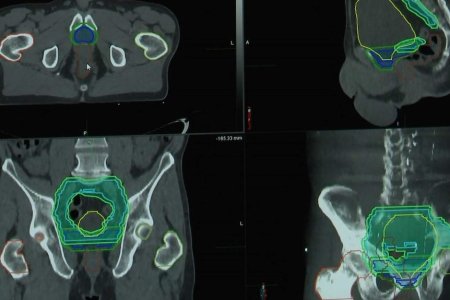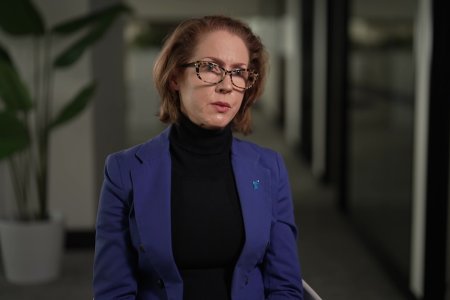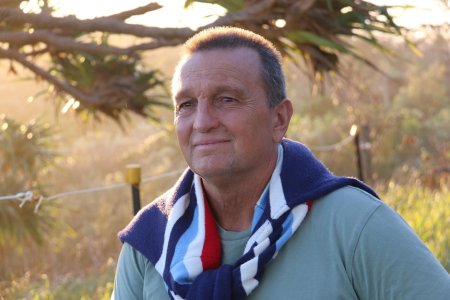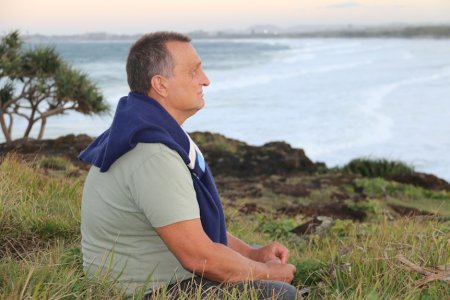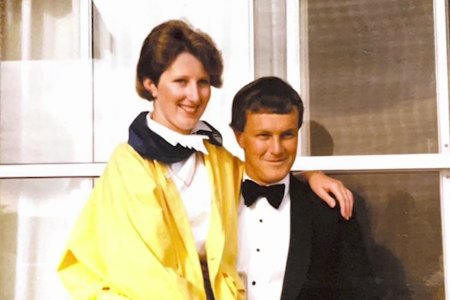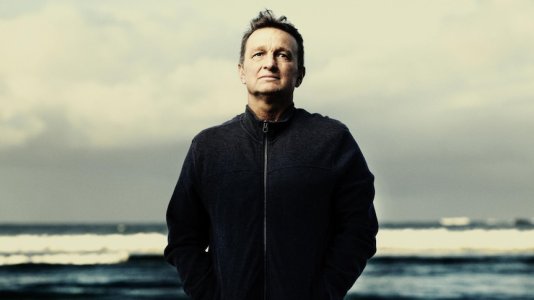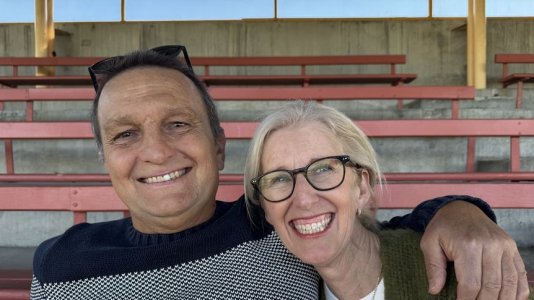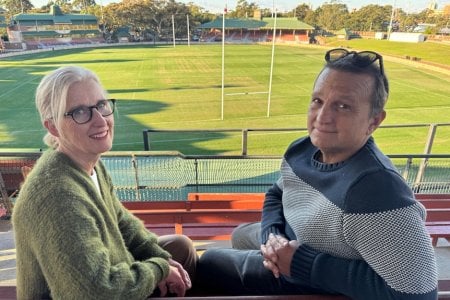Psychological side effects for common prostate cancer treatment raise concerns
By
ABC News
- Replies 0
There are calls for urgent reform of the way a widely used prostate cancer treatment is prescribed following a number of suicides by men undergoing the therapy.
Androgen deprivation therapy — known as ADT — is a hormone treatment that's commonly prescribed for men with advanced prostate cancer because it blocks the testosterone on which the cancer feeds.
It slows the progress of the cancer, but the side effects can be so debilitating that some men have chosen to take their own lives.
Prostate Cancer Foundation of Australia (PCFA) wants all men diagnosed with prostate cancer to be screened for distress and referred to a specialist nurse trained in providing ongoing psychological care.
This should include conversations with partners or loved ones when appropriate, education about the potential side effects of the treatment and strategies for maintaining quality of life.
PCFA chief executive Anne Savage said both doctors and patients need to be made more aware of the mental health risks of ADT.
"Overall, around 12 per cent of men impacted by prostate cancer will experience suicidal ideation, which is significantly associated with hormonal treatment."
About 4,000 of these men have stage 3 or 4 cancer, which will likely require ADT. Many more previously treated for prostate cancer will be recommended for the therapy if their cancers recur or progress.
Research reported by PCFA has warned that men on ADT for prostate cancer face a higher risk of suicide.
According to Ms Savage, the potentially deadly side effects have been well established by international and Australian studies, but are not well known.
But she said it's important to remember that ADT remains an effective method to slow the cancer for most patients.
"What we don't want is for men to stop taking hormone therapy. This is a life-saving treatment that stops prostate cancer from spreading," Ms Savage said.
"What we must do, though, is ensure that men don't walk alone with the disease or its treatment."
Melbourne prostate cancer specialist professor Declan Murphy said no-one would argue with the call to provide better support to patients.
He said the likelihood of suicide is extremely low, but it does appear to be higher in men who have started ADT.
"I think it's likely that the burden of being diagnosed with metastatic prostate cancer itself is also contributing to depression and suicide risk, so the relative risk increase may be overstated," he said.
Put onto ADT hormone treatment, he soon began to feel emotionally vulnerable.
"The hormone therapy amounted to chemical castration. It meant loss of libido, loss of erectile function, loss of bone density, and it causes breast swelling, genital shrinkage and loss of muscle mass," he said.
"I remember thinking, 'I'll never be whole again, and I'm not sure how I survive this. The treatment, let alone the disease.'"
He doesn't remember any warning about the risk of suicide, but within months, he found himself lying awake at night feeling that his family would be better off without him.
"I felt like the warnings around ADT were entirely inadequate, and I do think prescribing ADT to men and not providing better support is medically negligent."
Unknown to Mr Baker, his experience was one shared by a stranger on the other side of the country.
But the cancer returned four years later.
His doctor recommended he go onto ADT, a treatment that his wife, Liz, queried at the time.
"I asked the specific question about how it may impact Craig's mental wellbeing because he's on antidepressants," she said.
When the doctor told her he'd only had one patient with an adverse reaction to ADT, she didn't think much more about it.
Within two months, she noticed him becoming irritable, not sleeping well and having zero libido — something that troubled Mr Heggaton himself.
"It was just this insidious slide of him not being his normal happy-go-lucky self," Ms Heggaton said.
"And it was like he just fell into the abyss."
But it was a shock when Mr Heggaton took his own life last year while on a camping trip with friends to the Big Red Bash music festival near Birdsville in Central Australia.
At first, his wife had no answers as to why her husband had taken such an extreme step.
Months later, she listened to an ABC Conversations interview with Mr Baker and had a "light bulb moment" when he described his emotional meltdown while on ADT.
"The night that Craig died, I hadn't really suspected that it was the ADT. The thing that really struck me was that Tim had been on the same treatment that Craig was on," she said.
"This drug, the power of this drug could in fact have caused Craig's suicide."
She emailed Mr Baker and was "shocked and excited" to receive a response from him within 30 minutes.
"Liz's story about her husband's suicide touched me so deeply because I'd been there," Mr Baker said.
"I'd been in his position where I'd questioned whether life was worth living, and I could entirely relate to his decision."
After hearing more of Mr Heggaton's story, he believes the popular farmer and sheep breeder was given inadequate warning about the side effects of ADT treatment, particularly since he was on antidepressants.
"He should have been told that the drug carries the very real risk of inducing depression and mood swings, and that it carries an increase in your risk of suicide," Mr Baker said.
They describe themselves as an odd pairing, an unlikely alliance of a WA farmer and a northern NSW surfer, who would otherwise have never crossed paths.
With the support of PCFA, they hope to start an annual sporting event — like the Pink Test for breast cancer — to raise funds and research into prostate cancer.
Mr Baker has written a book, Patting the Shark, about his cancer experience and has since become a respected patient advocate.
After 10 years on and off ADT, he has come to accept the treatment as a necessary evil.
"Oh look, if I hadn't done ADT hormone treatment, I don't think I'd still be here," he said.
But the effectiveness of the treatment for him is waning, which means he'll have to consider targeted radiation or look for a clinical trial of an alternative approach.
"But there are no curative options ahead of me. So it's really a matter of managing it and staying fit and healthy for as long as I can," he said.
Ms Heggaton believes every man and his partner need to be counselled about the side effects of ADT before going on the drug, to ensure they are fully warned about how their body is going to feel when they start treatment.
She hopes that something good may flow from her husband's tragic death.
"I want to find my voice and not let Craig's death be in vain. Make good of a really shitty situation, and try and help others through this process."
Written by Ben Cheshir, ABC News.
Androgen deprivation therapy — known as ADT — is a hormone treatment that's commonly prescribed for men with advanced prostate cancer because it blocks the testosterone on which the cancer feeds.
It slows the progress of the cancer, but the side effects can be so debilitating that some men have chosen to take their own lives.
Prostate Cancer Foundation of Australia (PCFA) wants all men diagnosed with prostate cancer to be screened for distress and referred to a specialist nurse trained in providing ongoing psychological care.
This should include conversations with partners or loved ones when appropriate, education about the potential side effects of the treatment and strategies for maintaining quality of life.
PCFA chief executive Anne Savage said both doctors and patients need to be made more aware of the mental health risks of ADT.
If you or anyone you know needs help:
"We are aware of a number of cases where ADT is believed to have played a role in the deterioration of men's mental health, leading to suicide," she said."Overall, around 12 per cent of men impacted by prostate cancer will experience suicidal ideation, which is significantly associated with hormonal treatment."
Thousands of Australians undergo ADT each year
Every year, more than 26,000 Australian men are diagnosed with prostate cancer.About 4,000 of these men have stage 3 or 4 cancer, which will likely require ADT. Many more previously treated for prostate cancer will be recommended for the therapy if their cancers recur or progress.
Research reported by PCFA has warned that men on ADT for prostate cancer face a higher risk of suicide.
According to Ms Savage, the potentially deadly side effects have been well established by international and Australian studies, but are not well known.
But she said it's important to remember that ADT remains an effective method to slow the cancer for most patients.
"What we don't want is for men to stop taking hormone therapy. This is a life-saving treatment that stops prostate cancer from spreading," Ms Savage said.
"What we must do, though, is ensure that men don't walk alone with the disease or its treatment."
Melbourne prostate cancer specialist professor Declan Murphy said no-one would argue with the call to provide better support to patients.
He said the likelihood of suicide is extremely low, but it does appear to be higher in men who have started ADT.
"I think it's likely that the burden of being diagnosed with metastatic prostate cancer itself is also contributing to depression and suicide risk, so the relative risk increase may be overstated," he said.
Prostate cancer patients must survive both treatment and disease
Surfing writer Tim Baker had just turned 50 when he was diagnosed with advanced prostate cancer, which had metastasised into the bone.Put onto ADT hormone treatment, he soon began to feel emotionally vulnerable.
"The hormone therapy amounted to chemical castration. It meant loss of libido, loss of erectile function, loss of bone density, and it causes breast swelling, genital shrinkage and loss of muscle mass," he said.
"I remember thinking, 'I'll never be whole again, and I'm not sure how I survive this. The treatment, let alone the disease.'"
He doesn't remember any warning about the risk of suicide, but within months, he found himself lying awake at night feeling that his family would be better off without him.
"I felt like the warnings around ADT were entirely inadequate, and I do think prescribing ADT to men and not providing better support is medically negligent."
Unknown to Mr Baker, his experience was one shared by a stranger on the other side of the country.
'He just fell into the abyss': Craig's story
WA farmer Craig Heggaton was diagnosed with prostate cancer at age 56 and soon after underwent a prostatectomy, which he assumed would be the end of the matter.But the cancer returned four years later.
His doctor recommended he go onto ADT, a treatment that his wife, Liz, queried at the time.
"I asked the specific question about how it may impact Craig's mental wellbeing because he's on antidepressants," she said.
When the doctor told her he'd only had one patient with an adverse reaction to ADT, she didn't think much more about it.
Within two months, she noticed him becoming irritable, not sleeping well and having zero libido — something that troubled Mr Heggaton himself.
"It was just this insidious slide of him not being his normal happy-go-lucky self," Ms Heggaton said.
"And it was like he just fell into the abyss."
But it was a shock when Mr Heggaton took his own life last year while on a camping trip with friends to the Big Red Bash music festival near Birdsville in Central Australia.
At first, his wife had no answers as to why her husband had taken such an extreme step.
Months later, she listened to an ABC Conversations interview with Mr Baker and had a "light bulb moment" when he described his emotional meltdown while on ADT.
"The night that Craig died, I hadn't really suspected that it was the ADT. The thing that really struck me was that Tim had been on the same treatment that Craig was on," she said.
"This drug, the power of this drug could in fact have caused Craig's suicide."
She emailed Mr Baker and was "shocked and excited" to receive a response from him within 30 minutes.
"Liz's story about her husband's suicide touched me so deeply because I'd been there," Mr Baker said.
"I'd been in his position where I'd questioned whether life was worth living, and I could entirely relate to his decision."
After hearing more of Mr Heggaton's story, he believes the popular farmer and sheep breeder was given inadequate warning about the side effects of ADT treatment, particularly since he was on antidepressants.
"He should have been told that the drug carries the very real risk of inducing depression and mood swings, and that it carries an increase in your risk of suicide," Mr Baker said.
The odd couple teaming up to raise awareness
Mr Baker and Ms Heggaton have now joined forces to drive an awareness campaign about prostate cancer, which is the most commonly diagnosed form of cancer in Australia.They describe themselves as an odd pairing, an unlikely alliance of a WA farmer and a northern NSW surfer, who would otherwise have never crossed paths.
With the support of PCFA, they hope to start an annual sporting event — like the Pink Test for breast cancer — to raise funds and research into prostate cancer.
Mr Baker has written a book, Patting the Shark, about his cancer experience and has since become a respected patient advocate.
After 10 years on and off ADT, he has come to accept the treatment as a necessary evil.
"Oh look, if I hadn't done ADT hormone treatment, I don't think I'd still be here," he said.
But the effectiveness of the treatment for him is waning, which means he'll have to consider targeted radiation or look for a clinical trial of an alternative approach.
"But there are no curative options ahead of me. So it's really a matter of managing it and staying fit and healthy for as long as I can," he said.
Ms Heggaton believes every man and his partner need to be counselled about the side effects of ADT before going on the drug, to ensure they are fully warned about how their body is going to feel when they start treatment.
She hopes that something good may flow from her husband's tragic death.
"I want to find my voice and not let Craig's death be in vain. Make good of a really shitty situation, and try and help others through this process."
Written by Ben Cheshir, ABC News.

